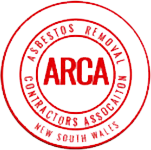As a business with working with land in Australia, you might have to deal with contaminated land at one point or another. It’s important that you’re aware of your responsibilities (in terms of dumping and disposals) as well as rights (as a third party or property buyer/seller) so that you remain on the right side of the law, no matter which side you’re on. Here’s what you need to know.
WHAT THE LAW SAYS
There are no Commonwealth laws specifically dealing with contaminated land but states and territories have regulations and acts involving environmental protection, waste management and pollution control. Most areas define contamination as land or water where chemicals have directly or indirectly added due to human activity that could impact health or environment.
WHO IS RESPONSIBLE?
If you’re responsible for contamination, then you’re responsible for payment and clean-up. If the responsible Party is unknown, the land owner or occupier becomes responsible, even if contamination occurred before their ownership. Clean-up will occur according to state regulations, with threshold testing, audits and risk assessments being undertaken. If the threat is low and not far reaching, an offset programme of community service might be recommended instead. In most cases, the land needs to be rendered safe enough for residential use.
WILL I GO TO JAIL?
If you knowingly and deliberately contaminated land it will earn you a hefty fine and possible criminal offense resulting from any of its side effects. If you weren’t aware of any contamination or took steps to minimize it and reported it promptly, you’ll more than likely escape these fines. You can however be held accountable should you refuse to comply with a clean-up requirement, whether you were responsible for it or not.
WHEN CAN I CLAIM DAMAGES?
If the land adjoining yours experiences contamination which causes damage and you can prove they failed to take the necessary steps to halt or avoid it, you could bring an action against them. If you plan on purchasing land you don’t have an obligation to investigate it for contamination but it’s worth the extra step and due diligence, and can save you time and significant legal fees. If you’re selling land that’s contaminated, you have to disclose the fact and ensure its been recorded on the Contaminated Land Register – before deciding who will clean up and who will pay.
Related Tag: Contaminated Land Management





